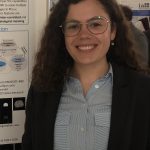The Institute of Biophysics and Biomedical Engineering (IBEB) is a research unit of the Faculty of Sciences of the University of Lisbon. IBEB was founded in 1992, and its activities are focused on research and postgraduate teaching. Research carried out at IBEB covers Biophyiscs and Biomedical Engineering approaches to understand some human health disorders. IBEB’s scientific activity is organized into 4 transversal research lines, distributed by its 24 full members.
IBEB contributes for the MSc and PhD programs in Biomedical Engineering and Biophysics of the Faculty of Ciências of Universidade de Lisboa and participates on other post-graduate courses within Ciências or in collaboration with other schools of ULisboa. More than 300 MSc dissertations (as of July 2023) and 30 PhD theses (as of July 2023) have been produced so far.
MISSION
IBEB’s mission is to improve scientific knowledge and training on the physical and physiological aspects underlying Oncology and Neurosciences in humans and apply them to the benefit of society.
OBJECTIVE
The main objectives of IBEB aim to provide increased insights into the following general scientific questions:
Q1. How can we use imaging to detect cancer at its early stages and predict its evolution more reliably?
Q2. Can we use innovative ways to treat cancer and reduce treatment side effects?
Q3. How can we stimulate the brain non-invasively and use it for therapeutic purposes?
Q4. How are functional connections between the different parts of the brain structured in healthy and pathological conditions?
Q5. Can we characterise the neurochemistry, and genetics, involved in cognitive processes, such as social reward and empathy?
Q6. Can autonomic nervous system, and electroencephalographic, responses reflect cognitive processes and predict behaviour?
IBEB AIMS DOING THIS THROUGH
O1. The support of creative and ambitious research.
O2. Emphasizing multi- and inter-disciplinary approaches.
O3. Contributing to the use of physical and engineering principles in Diagnostics and Therapy.
O4. Supporting Biomedical Engineering training of undergraduate, Ph.D. and postdoctoral researchers.
O5. Exploring clinical, translational and multi-disciplinary research opportunities.
O6. Developing strategic partnerships that support and complement IBEB’s scientific strengths.
O7. Developing close interactions with industry and facilitate innovation and value creation.
O8. Engaging effectively with the society.
O9. Increasing young people’s enjoyment and aspirations in Biomedical Engineering.
STRATEGIC PLAN
Our research activities involve collaborations with various national and international institutions.
ACTIVITY REPORT
Our research activities involve collaborations with various national and international institutions.
TEAM
Coordination
Founder and retired members
Teaching staff
- Alexandre Andrade
- Ana Margarida Mota
- Brígida da Costa Ferreira
- Daniela Godinho
- Duarte Oliveira Saraiva
- Grisel Mora Paula
- Henrique Vicente Lopes
- Hugo Alexandre Ferreira
- João Mendes
- Leonor de Oliveira Pires
- Maria Gonçalves
- Nuno M. Garcia
- Nuno Matela
- Pedro Almeida
- Rafael Neto Henriques
- Raquel Conceição
- Sofia Rita Cardoso Fernandes
- Tânia Gonçalves
Research staff – integrated/full members
- Alexandre Andrade
- Ana Isabel A. D. Rodrigues Gouveia
- Ana Margarida Mota
- Anna Letournel
- Brígida da Costa Ferreira
- Carlotta Cogoni
- Daniela Godinho
- Diana Prata
- Grisel Mora Paula
- Hugo Alexandre Ferreira
- João Guerra
- João M. P. Coelho
- Maciej Kosiło
- Matilde Pós-de-Mina Pato
- Nuno M. Garcia
- Nuno Matela
- Paulo Magalhães Martins
- Pedro Almeida
- Rafael Neto Henriques
- Raquel Conceição
- Ricardo Faustino
- Seán Finn
- Sofia Rita Cardoso Fernandes
- Tânia Gonçalves
- Tiago Atalaia










































